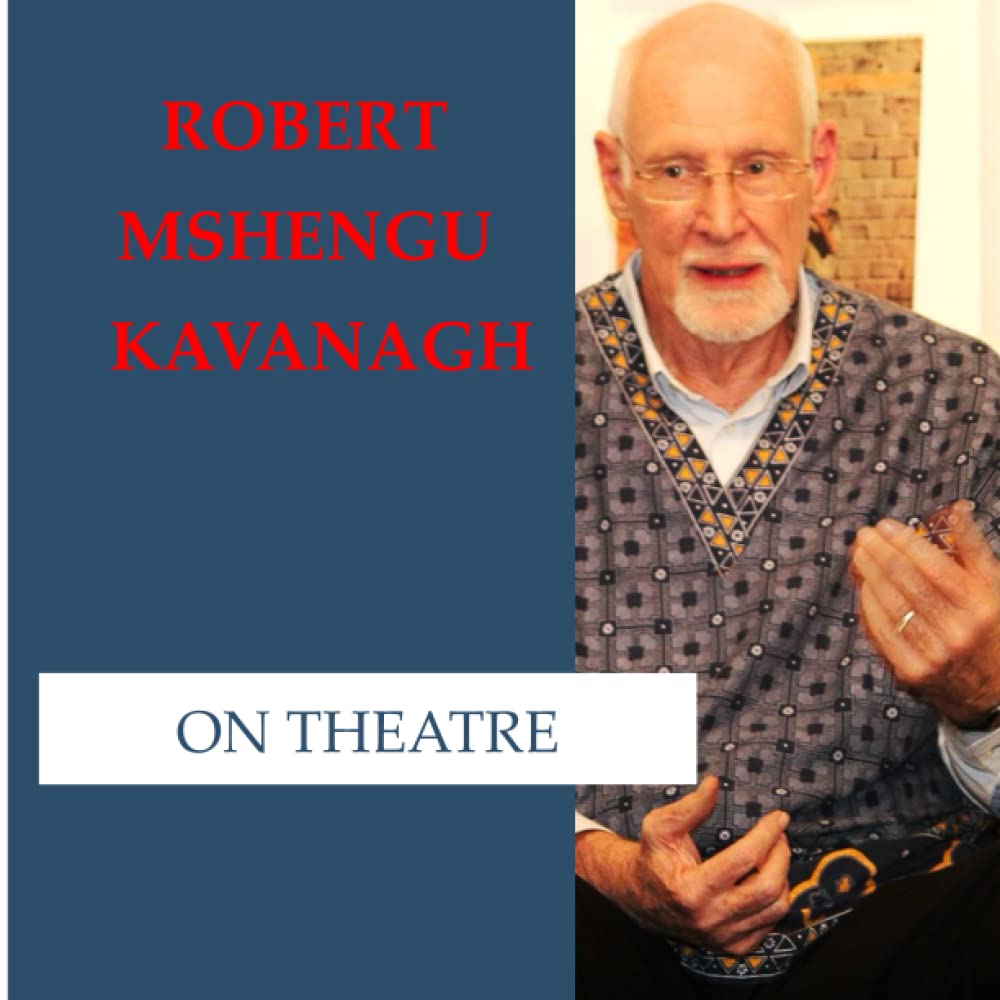
Robert Mshengu Kavanagh On Theatre by Robert Mshengu Kavanagh (2022)

As both a scholar and theatre practitioner, …a cultural activist, a leading commentator. – Professor Ian Steadman.
His taste and smell of the South African literary and artistic landscape is fresh and refreshing - Duma Ndlovu.
A collection of over 50 years of writings on theatre in Africa.<!--more-->
“Kavanagh has been writing for and/or on theatre since 1969 up to the present moment. This book is a generous exposition of his thinking on theatre in one volume. It is evidence of his unambiguous dedication to the development of African theatre. While all theory comes from practice, it then returns to guide practice. Throughout Kavanagh’s collaboration with many theatre makers spanning a period of more than fifty years, he has been learning from them inasmuch as they were learning from his gifts. The collection of articles in this book, read together with some of Kavanagh’s books, proposes a theory of African theatre ensconced in such terms as African narrative theatre, African non-realism and African aesthetic. The tenets of this theory are scattered throughout this book. The book will be an excellent resource for scholars wanting to develop this theory further. The book does not only a propose a theory, but a system of practice of African theatre. It is useful to both theorists and practitioners of African theatre or those who want to learn from it. While the book contains some excellent academic papers, it also carries a record of his casual writings to newspapers and magazines. The latter writings are not new to Kavanagh’s output; he has a record of writings on theatre in The Complete S’ketsh [2016] and Zimbabwe Theatre Report [1988]. These kinds of writings are critical to any theatre historian who is interested in the how, where, what and why of Zimbabwean and South African theatre. Many books and doctoral theses on this subject have relied on crucial archives like these. This book is for such researchers and any casual reader who is interested in what happened and the prevailing context of such theatre.While, indeed, there has been research on Zimbabwean and South African theatre, much of that output is replete with what Ali Mazrui [2009] has called ‘Euro-exclusivity’ which he defines as the tendency to give disproportionate space to the western side of history. In southern Africa, white history and the roles whites played in advancing theatre is given more space in published work. This book deviates from the norm and dedicates the bulk of its content to Africans and their agency in creating new work which is not given such condescending labels as township theatre, community theatre, as is always the case when black agents are involved in theatre. Theatre proper, then becomes the preserve of all work created by white theatre makers. This book takes an African perspective which is one of the ways in which decolonisation of African theatre can be achieved. This book significantly advances the decolonisation agenda through the careful choice of case studies, the proposition of an African theory of theatre and its ideological gaze.” - taken from Prof. Sam Ravengai’s Introduction.
[penci_button link="https://www.amazon.com/Robert-Mshengu-Kavanagh-Theatre/dp/B0939M9NPJ/?_encoding=UTF8&pd_rd_w=3xFq4&pf_rd_p=91202c6f-1c11-4e3d-b51a-3af958cedd30&pf_rd_r=P51HYCJNZRNB47967TCT&pd_rd_wg=4u8VW&pd_rd_r=1fd708e1-2aa4-45d1-a4b5-5b915c9bffc8&content-id=amzn1.sym.91202c6f-1c11-4e3d-b51a-3af958cedd30&ref_=aufs_ap_sc_dsk" icon="fa fa-address-book" icon_position="left"]Buy Now[/penci_button]
